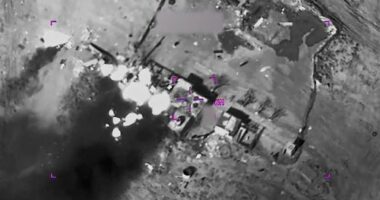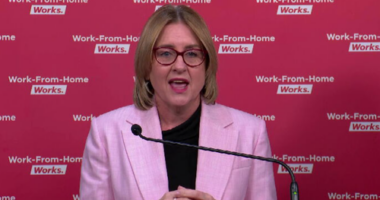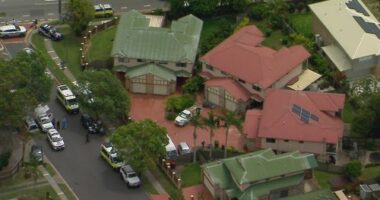Share this @internewscast.com
Martin Kear, a lecturer specializing in international relations at the University of Sydney, along with Ian Parmeter, a research scholar at the Australian National University’s Centre for Arab and Islamic Studies, have provided insight into the ongoing tensions in the occupied Palestinian territories.
Recent reports from the United Nations Human Rights Office in the Occupied Palestinian Territory have highlighted a distressing number of fatalities. Since October 7, 2023, a total of 1,001 Palestinians have lost their lives in the West Bank and East Jerusalem. The majority of these deaths have been attributed to actions by Israeli security forces, which have been accused of employing a “systematic use of lethal force against Palestinians in the vast majority of cases.”
In numerous incidents, the military justified the use of force by claiming that young Palestinians were throwing rocks at their troops. This tense atmosphere has been further exacerbated by reports from Palestinian olive farmers, who have faced significant challenges during the harvest season. They have accused Israeli security forces of blocking roads and access, hindering their ability to gather their crops.
The situation remains delicate, with the international community closely monitoring developments. The ongoing conflict continues to impact daily life in the region, leaving many to hope for a peaceful resolution to the longstanding issues.
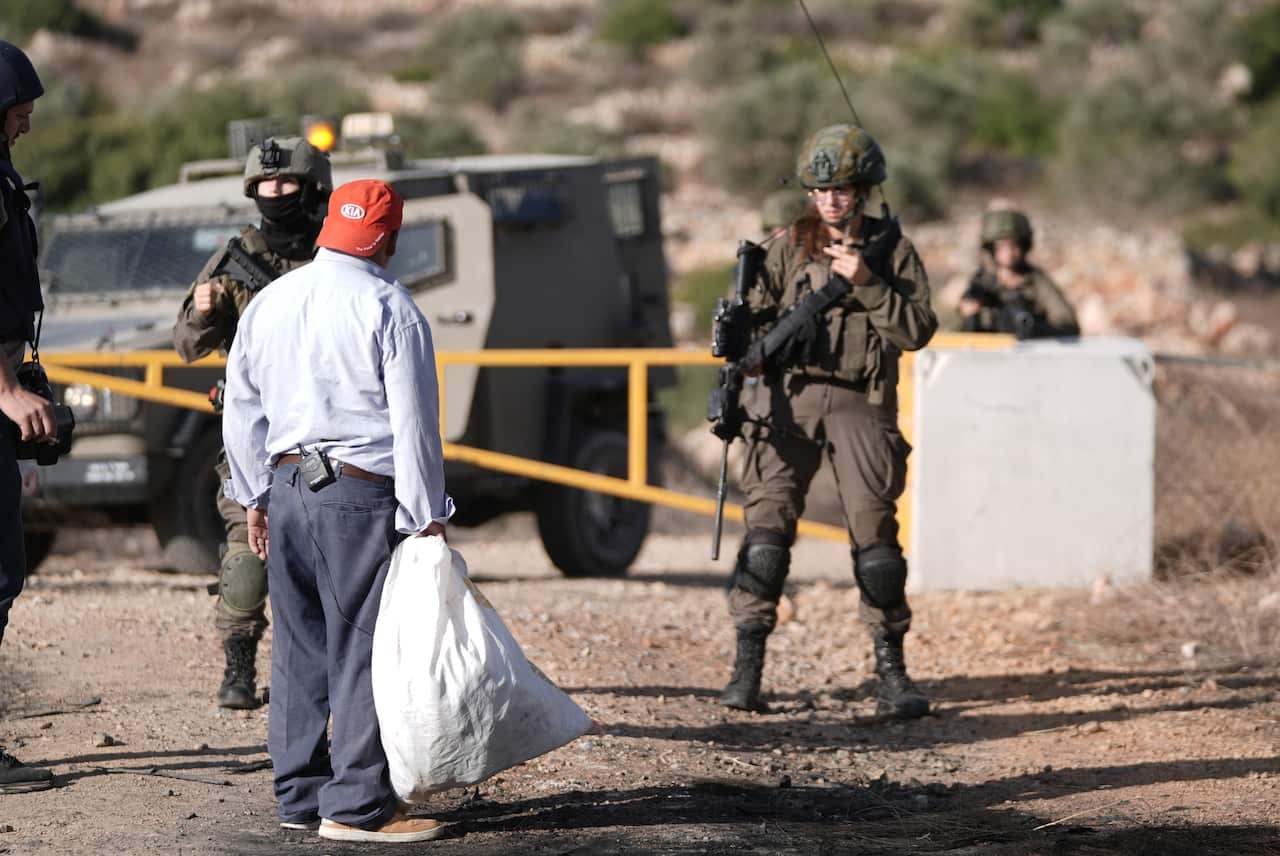
Palestinian olive farmers in the West Bank have reported Israeli security forces blocking roads and access during the harvest season. Source: Getty / Anadolu
October is the annual olive harvest season in the West Bank — a key economic, social and cultural event for Palestinians — but attacks against Palestinians by settlers have reportedly spiked.
In 2024, more than 200 attacks were recorded, nearly double those in 2023 and more than three times higher than in 2022.
How many Israeli settlers are in the West Bank?
The West Bank and East Jerusalem are also home to around three million Palestinians.
In July, Israel’s parliament voted in favour of annexing the West Bank to claim it as part of Israel in a symbolic, non-binding motion.
There are more than 140 officially recognised West Bank settlements, illegal under international law, and more than 200 outposts, which are also illegal under Israeli law, but rarely result in legal consequences.
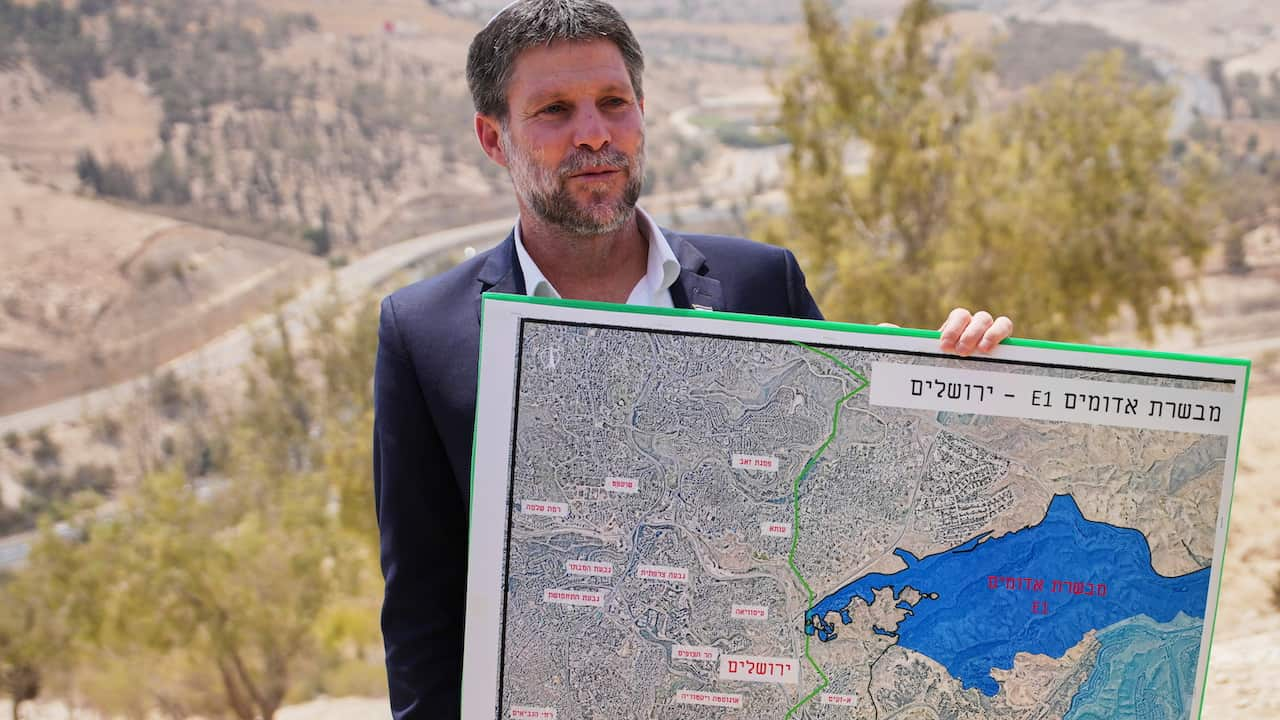
Israeli finance minister Bezalel Smotrich said earlier this year a controversial settlement project in the West Bank would “definitively bury” the idea of a Palestinian state. Source: AAP / Ohad Zwigenberg
Critics of the E1 project, which, like all Israeli settlements in the West Bank, is considered illegal under international law, say it will essentially split the West Bank in two, break Palestinian contiguity and significantly impede the chances for a viable two-state solution.
Kear argues the two-state solution has been a “fallacy” since Israel’s occupation in 1967, as Palestinians would not accept a state without East Jerusalem as its capital, and Israel will “never give up control” of it.
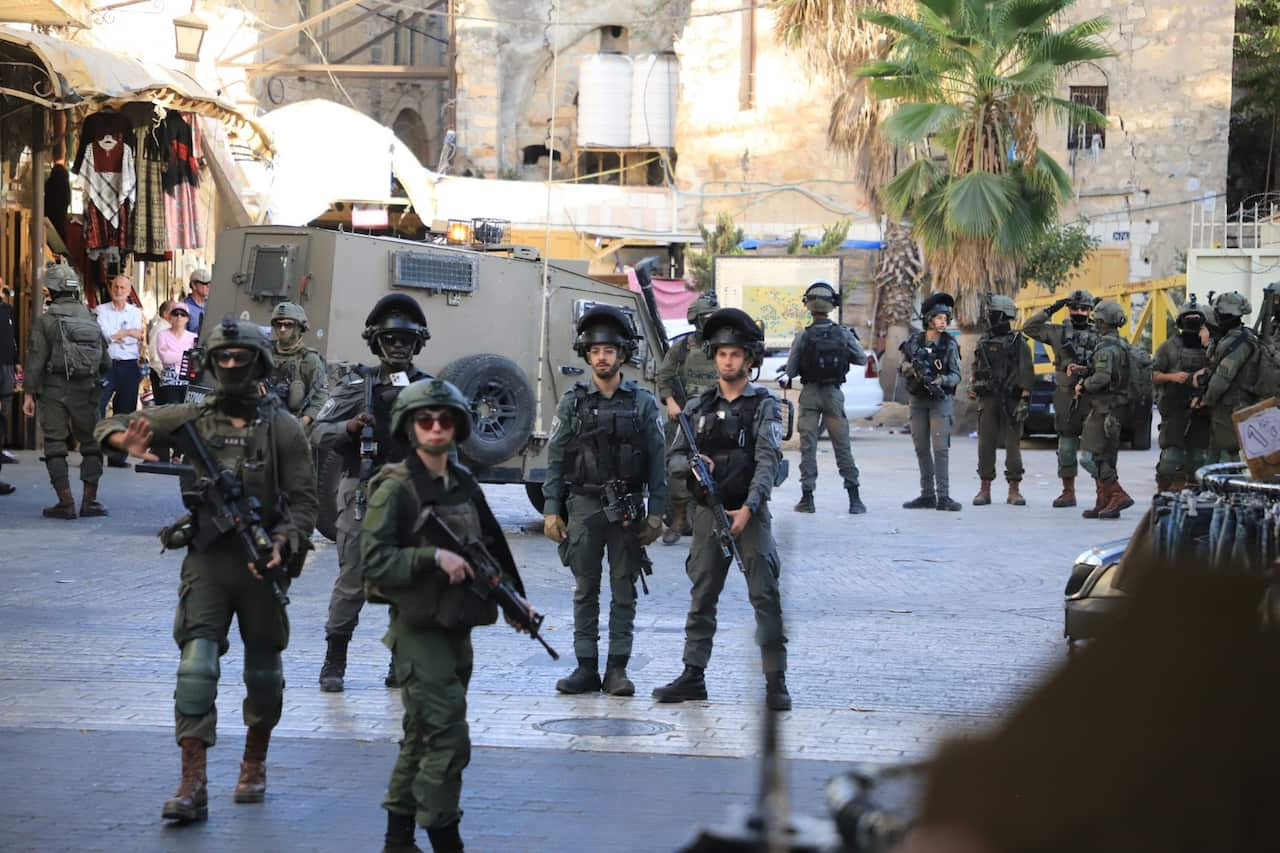
The UN Human Rights Office in the Occupied Palestinian Territory has accused Israeli forces of “systemic use of lethal force against Palestinians” in the West Bank. Source: Getty / Anadolu
Both Kear and Parmeter brought up the continued popularity of Hamas within the West Bank.


